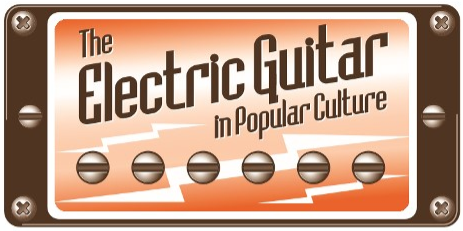
Panel 02 - The Electric Guitar in Rock Subcultures
We're Not Actually Musicians: The History and Evolution of Guitar Technique and Aesthetic in Punk Rock Music
Start Date
27-3-2015 4:00 PM
Description
This presentation will examine how a primary characteristic and aesthetic in punk rock music is the oftentimes sloppy and clunky manner in which the music is played. This unrefined sound in playing is due, mainly, to the genre getting its start by outcast kids who knew very little about music and how to play it, but were instead more concerned with creating an outlet in which they could express their opinions of contempt and disdain for mainstream music and culture. This fact, therefore, explains how the genre is also often accompanied with a self-deprecating sense of humor because of punk musicians' amateur level of skill. This presentation will discuss the evolution and roots of the punk rock guitar technique by tracing it back to the many rock and roll guitarists who are credited with being big influences on modern-day punk rock guitarists. This presentation will also analyze how, even after punk guitarists have since had several years to hone their skills and abilities, many of them still keep a sense of clunkiness and sloppiness in their style of playing, simply because it has become a primary characteristic that is specific to the genre. Some of the artists that will be discussed in this presentation based on their influence and contributions to punk guitar are Link Wray, Chris Britton from The Troggs, Wayne Kramer and Fred Smith from the MC5, James Williamson from The Stooges, David Hackney from Death, Johnny Ramone, Doyle from The Misfits, Joe Strummer and Mick Jones from The Clash, Laura Jane Grace from Against Me, Eric Melvin and El Hefe from NOFX, Kurt Cobain, Billie Joe Armstrong from Green Day, and Chris Hannah from Propagandhi. This discussion will conclude with a brief reflection on the phenomenon of punk rock guitarists making their way into the mainstream culture and being praised for their musical contributions that were once scoffed at and heavily criticized in their earlier days.
We're Not Actually Musicians: The History and Evolution of Guitar Technique and Aesthetic in Punk Rock Music
This presentation will examine how a primary characteristic and aesthetic in punk rock music is the oftentimes sloppy and clunky manner in which the music is played. This unrefined sound in playing is due, mainly, to the genre getting its start by outcast kids who knew very little about music and how to play it, but were instead more concerned with creating an outlet in which they could express their opinions of contempt and disdain for mainstream music and culture. This fact, therefore, explains how the genre is also often accompanied with a self-deprecating sense of humor because of punk musicians' amateur level of skill. This presentation will discuss the evolution and roots of the punk rock guitar technique by tracing it back to the many rock and roll guitarists who are credited with being big influences on modern-day punk rock guitarists. This presentation will also analyze how, even after punk guitarists have since had several years to hone their skills and abilities, many of them still keep a sense of clunkiness and sloppiness in their style of playing, simply because it has become a primary characteristic that is specific to the genre. Some of the artists that will be discussed in this presentation based on their influence and contributions to punk guitar are Link Wray, Chris Britton from The Troggs, Wayne Kramer and Fred Smith from the MC5, James Williamson from The Stooges, David Hackney from Death, Johnny Ramone, Doyle from The Misfits, Joe Strummer and Mick Jones from The Clash, Laura Jane Grace from Against Me, Eric Melvin and El Hefe from NOFX, Kurt Cobain, Billie Joe Armstrong from Green Day, and Chris Hannah from Propagandhi. This discussion will conclude with a brief reflection on the phenomenon of punk rock guitarists making their way into the mainstream culture and being praised for their musical contributions that were once scoffed at and heavily criticized in their earlier days.

